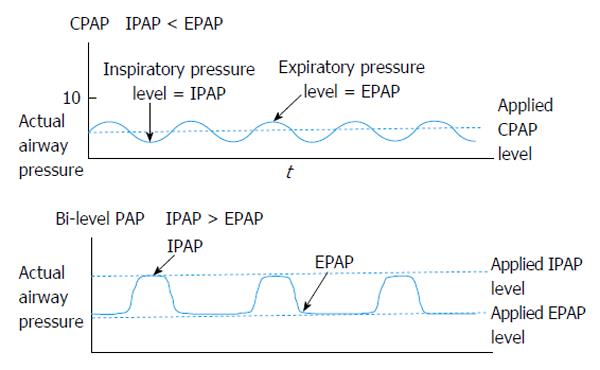Positive airway pressure therapy for heart failure
Table of Contents
Table of Contents
Are you familiar with Continuous Positive Airway Pressure Therapy and the importance of cultural competency in healthcare? If not, it’s time to take a closer look at these topics and understand their significance in patient care.
The Pain Points
Continuous Positive Airway Pressure (CPAP) therapy is a common treatment for sleep apnea, a condition that affects millions of people worldwide. However, the effectiveness of CPAP therapy can be affected by cultural beliefs and practices. For instance, patients from some cultures might find it difficult to sleep with a mask on, which can compromise the success of the treatment.
Cultural competency is also critical in patient care. Without it, healthcare providers may misunderstand their patients’ beliefs and values, which can lead to misdiagnoses, ineffective treatments, and poor outcomes. This lack of understanding can also lead to mistrust and broken relationships between the healthcare provider and patient.
The Target
The target of Continuous positive airway pressure therapy and cultural competency is to ensure that all patients, regardless of their cultural background, receive the best possible care. This means that healthcare providers must be aware of their patients’ beliefs and values and tailor their treatment plans accordingly.
Summary of the Main Points
Continuous Positive Airway Pressure Therapy and cultural competency are two essential aspects of patient care. While CPAP therapy can be very effective, cultural beliefs and practices can affect its success. Cultural competency helps to ensure that healthcare providers understand their patients’ beliefs and values, which can result in better treatment outcomes and stronger patient-provider relationships.
Personal Experience with CPAP Therapy and Cultural Competency
As a healthcare provider, I have seen firsthand the impact that cultural competency has on patients. I once had a patient who was reluctant to try CPAP therapy because it conflicted with their cultural beliefs about sleeping. Instead of dismissing their concerns, I took the time to listen and understand their perspective. Together, we were able to come up with a treatment plan that worked for them, which led to successful outcomes.
 CPAP therapy can be challenging for some patients, especially those from different cultural backgrounds. To provide the best possible care, healthcare providers must be culturally competent and understand their patients’ unique needs and beliefs.
CPAP therapy can be challenging for some patients, especially those from different cultural backgrounds. To provide the best possible care, healthcare providers must be culturally competent and understand their patients’ unique needs and beliefs.
Importance of Cultural Competency in Patient Care
Being culturally competent means taking the time to understand your patient’s culture and beliefs. It involves developing a relationship of trust and respect with your patients and valuing their unique perspective. Cultural competency helps healthcare providers to understand the unique needs of each patient, leading to better treatment outcomes and patient satisfaction.
 ### The Role of Education in Promoting Cultural Competency
### The Role of Education in Promoting Cultural Competency
Education is key to promoting cultural competency among healthcare providers. By providing training and resources on cultural differences, healthcare providers can better understand the unique needs of their patients. Increasing awareness of cultural differences can lead to improved patient outcomes and stronger relationships between healthcare providers and their patients.
Overcoming Barriers to Cultural Competency
One of the barriers to cultural competency is the lack of diversity among healthcare providers. Without a diverse workforce that reflects the communities it serves, it can be challenging to understand the unique needs of different patient populations. To overcome this barrier, healthcare organizations must prioritize diversity and inclusion in their recruitment efforts.
Personal Experience with Implementing Cultural Competency
Implementing cultural competency in patient care has been a journey for me. It involves continuous learning and an ongoing commitment to understanding my patient’s needs and beliefs. By taking an active interest in my patient’s cultural background, I have been able to build stronger relationships with them and provide better care.
 Question and Answer
Question and Answer
Q: What are some of the benefits of cultural competency?
A: Cultural competency can lead to improved patient outcomes, increased patient satisfaction, and stronger healthcare provider-patient relationships.
Q: How can healthcare organizations promote cultural competency?
A: Healthcare organizations can promote cultural competency by providing training and education on cultural differences, ensuring diversity in hiring practices, and creating a culture of inclusivity.
Q: What are some of the challenges of implementing cultural competency in patient care?
A: Some of the challenges include limited resources, lack of diversity among healthcare providers, and resistance to change.
Q: How can I become more culturally competent as a healthcare provider?
A: You can become more culturally competent by taking an interest in your patient’s cultural background, seeking education and training on cultural differences, and working to develop a relationship of trust and respect with your patients.
Conclusion of Continuous Positive Airway Pressure Therapy and Cultural Competency
Continuous Positive Airway Pressure Therapy and cultural competency are critical aspects of patient care. By being culturally competent and understanding your patient’s unique needs, healthcare providers can provide better care and build stronger relationships with their patients. By promoting cultural competency in healthcare, we can ensure that all patients, regardless of their cultural background, receive the best possible care.
Gallery
Continuous Positive Airway Pressure (CPAP) Devices Market

Photo Credit by: bing.com / pressure positive airway continuous cpap devices types market machine breathing bipap different insights premium press release
Continuous Positive Airway Pressure Therapy | Nursing Information

Photo Credit by: bing.com / pressure continuous positive airway therapy
Mechanism Of Action Of Continuous Positive Airway Pressure Therapy IV

Photo Credit by: bing.com / airway mechanism
What You Should Know About Continuous Positive Airway Pressure (CPAP

Photo Credit by: bing.com / cpap airway continuous
Positive Airway Pressure Therapy For Heart Failure

Photo Credit by: bing.com / pressure airway positive continuous bi level therapy 1175 wjc heart failure v6 i11


